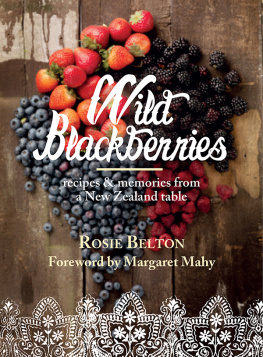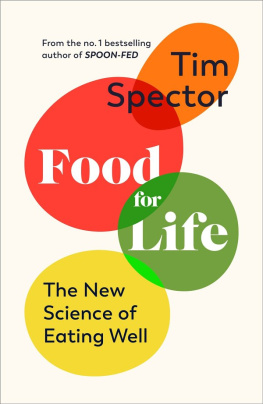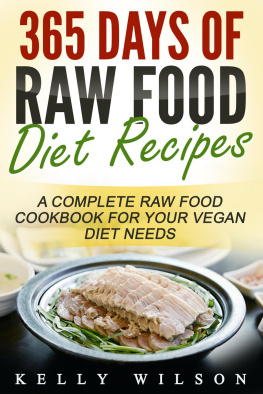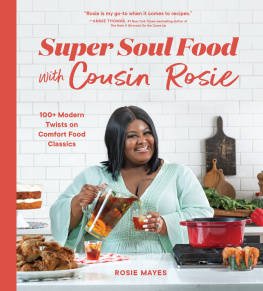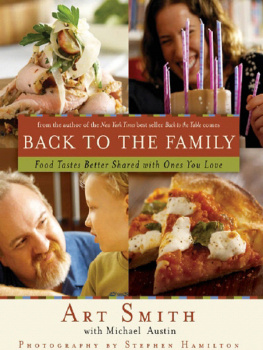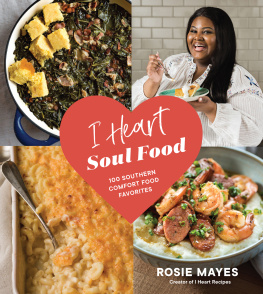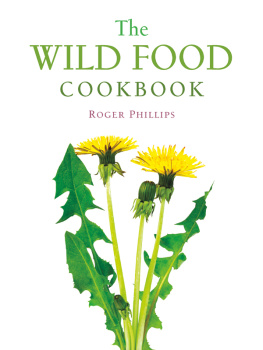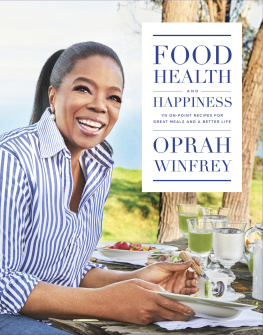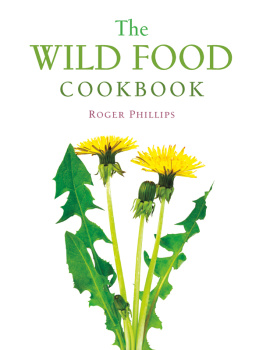
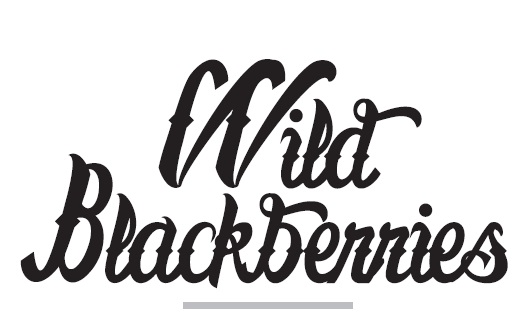
Recipes and memories from
a New Zealand table
ROSIE BELTON
Foreword by Margaret Mahy

Published by Allen & Unwin in 2014
Copyright Rosie Belton 2014
All rights reserved. No part of this book may be reproduced or transmitted in any form or by any means, electronic or mechanical, including photocopying, recording or by any information storage and retrieval system, without prior permission in writing from the publisher. The Australian Copyright Act 1968 (the Act) allows a maximum of one chapter or 10 per cent of this book, whichever is the greater, to be photocopied by any educational institution for its educational purposes provided that the educational institution (or body that administers it) has given a remuneration notice to Copyright Agency Limited (CAL) under the Act.
Allen & Unwin
Sydney, Melbourne, Auckland, London
83 Alexander Street
Crows Nest NSW 2065
Australia
Phone: (61 2) 8425 0100
Fax: (61 2) 9906 2218
Email: info@allenandunwin.com
Web: www.allenandunwin.com
Cataloguing-in-Publication details are available
from the National Library of Australia
trove.nla.gov.au
ISBN 978 1 87750 533 1
eISBN 978 1 74343 752 0
Typeset by Bookhouse, Sydney
To all who want to eat and live well, and who find joy
in the creating and sharing of food.
For Mark who has journeyed with me;
Our children and their partners
who joined us along the way;
And to the grandchildren, hoping you
will carry on the tradition.
Contents
Like a lot of other people I love food, I always have loved it, and am sure I always will.
There have been times when I struggled to cook well, read recipe books carefully and tried hard to be accurate when measuring ingredients, so it came as a shock to me when one of my daughters looked at me critically across her dinner plate.
How is it, everyones dinner tastes nicer than ours? she asked me.
The words are burned into my memory to this very day.
Everyone needs to eat and most of us love eating. We all know that food is a fundamental human need and it reaches us in a great variety of ways. We vary food according to the time of day, we experiment with it (working out what we like best). We decorate it. And finally we consume it. We chew it, taste it, swallow it and digest.
A book like this one by Rosie Belton exemplifies our love of food... the mystery and romance of it, beyond mere nutritional requirements. It is an exploration of one individuals relationship to food, and of the emotional satisfaction and inspiration food can provide. But it is an account both personal and universal. As Rosie writes about her individual journey and insights (reinforcing them with various recipes) she can spark off memories in her readers of separate magical experiences in which connections with food have been made.
I remember that, many years ago, I went to London to meet the American entrepreneur and editor who had ushered my books into the childrens book markets of the world. I left behind me a New Zealand which, in those days, could only boast of a rather nave, possibly primitive cuisine. Arriving in London I was taken to join my editor, who was staying at the Savoy Hotel surrounded by a grandeur I had never previously encountered. In due course we went to the dining room to have a meal. I will never forget my first mouthfuls of the entre. Dont misunderstand me! I had enjoyed many meals in New Zealand but I had never tasted anything quite so commanding yet subtle as that entre at the London Savoy. They must have employed a particularly able cook. As I say, it was many years ago and I cannot remember just what it was I was eating, but I do remember that moment of transforming tastethe revelation of what richness there could be in wonderfully prepared food.
Rosies complex involvement with food is deep seated, springing initially from childhood memories of a grandmother who was a lively and generous hostess, regularly entertaining large groups of people, all exuding pleasure at being together, eating well and having a good time. So Rosie remembers not only the delicious food, but its social variety and impactthe lively debates and flow of pleasurable emotions that it engendered.
She did not herself begin cooking at all seriously until she was twenty and just married, but the impact of those early days lingered on, colouringand flavouringwhat is too often regarded as a somewhat banal activity. Of course the New Zealand of today is very different from what it was when I left it to make that first trip to London.
Food is now celebrated in various subtle ways, and we can confidently expect from it variety and often deep pleasure. During the 1970s people became involved in the self-sufficiency movement, started baking their own bread, or even making their own cheeses. And over the next decade eating out or taking advantage of someone elses good cooking became increasingly popular. Food preparation grew beyond being a skill. It became an art, and in this book Rosie writes not only as a cook, but as an artist, invoking images of colour, texture and smell, while acknowledging the emotional power that simple eating can have for human beingsand quite possibly for other species as well. Some of the themes Rosie touches on seem detached from cooking as it is commonly understood, and yet, for Rosie, inspiration is not confined to the kitchen. The world around her... the environment in Governors Bay where she lives... the rocky hills against the sky, the long Lyttelton Harbour that stretches out in front of us, all help to establish a mood, an inspiring series of imaginative contexts for the preparation and enjoyment of food. Her accounts of cooking acknowledge personal connections, moods and insights that are not commonly seen as flowing into the cooking process.
So finally, this book is not simply a good cooking book (which it is) but a great, and in many ways unexpected pleasure, to read in all sorts of ways. Read on! Cook on! Eat on! Be part of a universal human need, experience and art.
Margaret Mahy
The preparation of foodthe smells and tastes and textureshave accompanied me throughout the journeys of my life. Looking back over the years, very often food memories have become the marker posts defining boundaries, demarcating challenges and change.
Perhaps it is idolatrysometimes it feels like pure wickedness to love the tastes, textures and aromas so much. In times of joy food has enhanced the feeling of celebration and in times of sadness it has provided colour and comfort. And in times of anxiety and emptiness its preparation gives rhythm and meaning to the day and offering food to others brings a sense of accomplishment and fulfilment. When all else failscook!
Rosie Belton
I remember my mother, a dutiful and perfectionist New Zealand housewife, for her cooking. She perfected the Kiwi gastronomy of the 1950s and 60s, turning out three meals a dayit was before eating out became common. Her pavlova, the classic special-occasion dessert dish of our childhood, was hard on the outside but soft and slightly chewy on the inside. This plateau of meringue we saw as a symbol of our Kiwiness (although the desserts provenance is hotly contested by our trans-Tasman neighbours).
Next page
